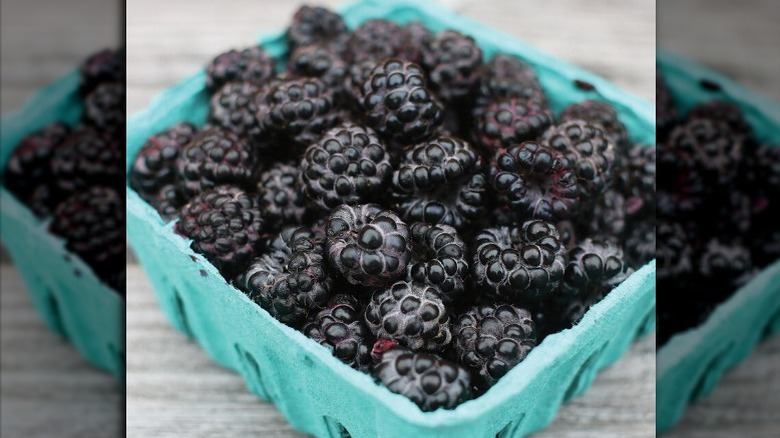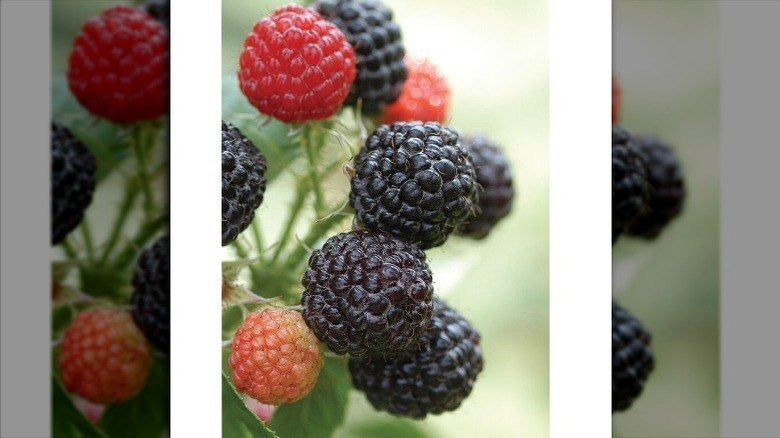What You Need To Know About This Summer's Black Raspberry Shortage
There's just something about summer fruit that makes us swoon. The variety of succulent melons, stone fruit, and berries available in farmers markets and grocery stores right now inspires thoughts of watermelon and feta salad, decadent peach cobbler, and cream-stuffed strawberry shortcakes. Of course, straightforward snacking on these sweet summer offerings is also a delight.
One summer fruit we happen to love is black raspberry, that elusive, less-common cousin of red raspberries. According to Food & Wine, the annual U.S. black raspberry crop usually yields only about three million pounds per year, while more common red raspberries typically yield about 50 million pounds per year. Perhaps it's their rarity that draws us to black raspberries; perhaps it's their delicious flavor, which is similar to red raspberries but a bit deeper and more intense thanks to the berries' high levels of antioxidants and a compound called anthocyanins, which create their dark purple pigment (via WebMD).
We were looking forward to eating sticky handfuls of black raspberries this summer — but it turns out the fruit is facing a shortage.
Dried-up berries in Oregon
According to Food & Wine, the U.S. black raspberry harvest has faced challenges over the past few years, but this year is particularly tough. Oregon's Willamette Valley, south of Portland, is the country's most important center of black raspberry production. But temperatures exceeding 100 degrees Fahrenheit hit the area last month, right before the berries were due to be harvested. The fruits dried up and stuck to their bushes, making them unable to be harvested by machines. There's hand-harvesting, but Food & Wine notes it is simply too time-consuming to be profitable. Therefore, an already-shrinking black raspberry harvest — affected in recent years by older farmers retiring, and others choosing more reliable crops like blueberries — will be especially low this year.
"There will be a significant loss, but we don't know what that percentage of loss will be until we get further through this season," Darcy Kochis, an Oregon Blackberry and Raspberry Commission spokesperson, told Food & Wine.
Color us bummed to be missing out on this unusual and delicious fruit. It seems like we'll have to drown our sorrows in the equally appealing — but much more widely available — summertime treat of black raspberry Italian ice.

